Apple thought itself cheeky when it used the word “slofie” to introduce the slow-motion feature on the iPhone 11’s selfie camera.
Now that the chuckles have subsided, Apple wants to trademark the name.

Apple thought itself cheeky when it used the word “slofie” to introduce the slow-motion feature on the iPhone 11’s selfie camera.
Now that the chuckles have subsided, Apple wants to trademark the name.

Apple has emerged triumphant in a seven-year legal battle with the company RXD Media over who owns the name “iPad.”
RXD had claimed that it owned the rights to the name based on its ipad.mobi platform, which launched two years before Apple debuted the iPad. The resolution to the case, which backs up a 2018 trademark hearing, finally brings an end to the saga.
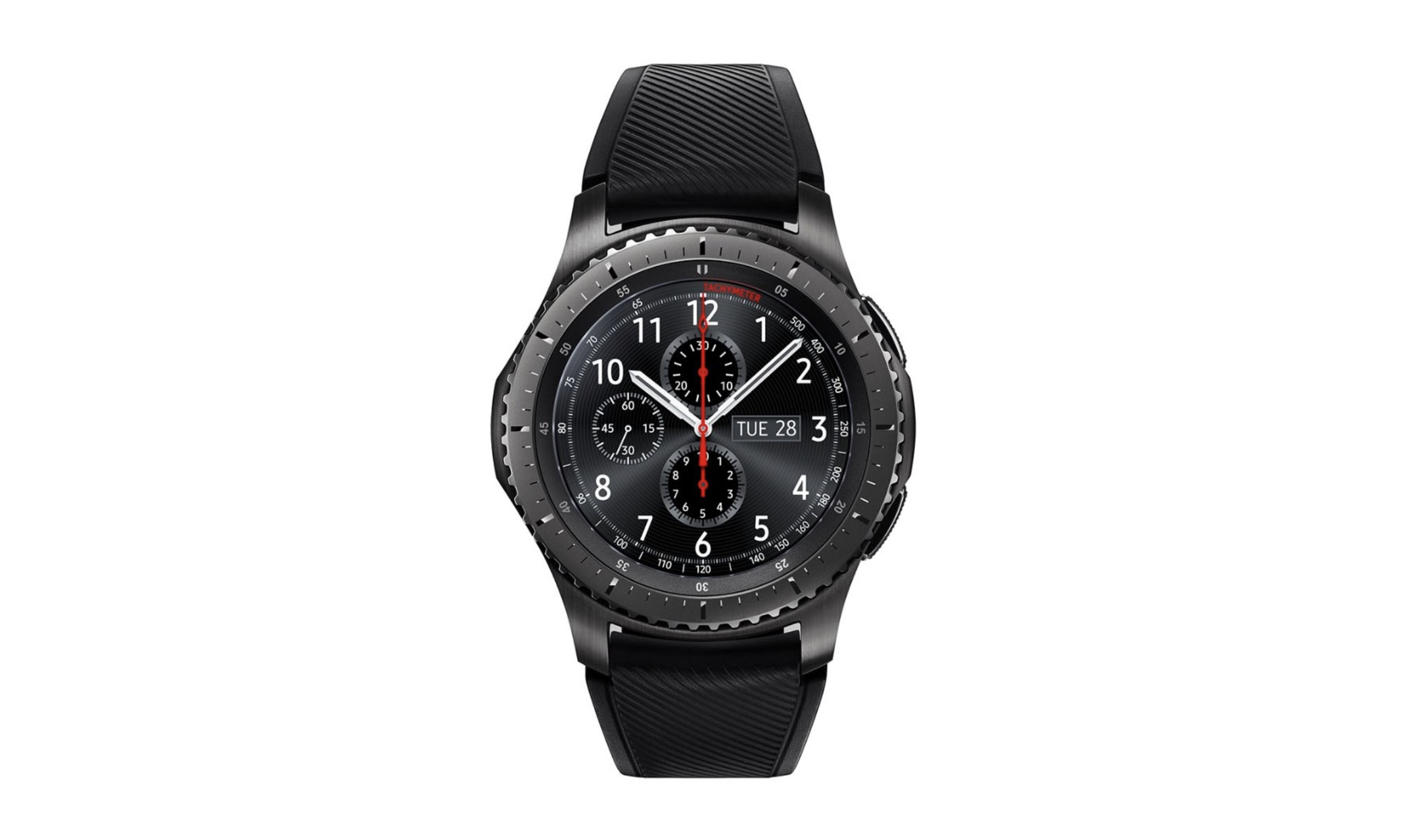
Swatch has filed a complaint against Samsung for allegedly infringing upon trademarks on watch face designs.
The Swiss watchmaker claims Samsung’s downloadable smartwatch faces “bear identical or virtually identical marks” to those Swatch uses for brands like Longines, Omega, and Tissot.

iOS 12’s Memojis — Animoji-style avatars which look like the user, rather than talking poop emojis or animals — are a cool feature that sets Apple apart from some of its Android rivals.
But according to a new lawsuit, the Memoji trademark actually came from an Android app with the same name.
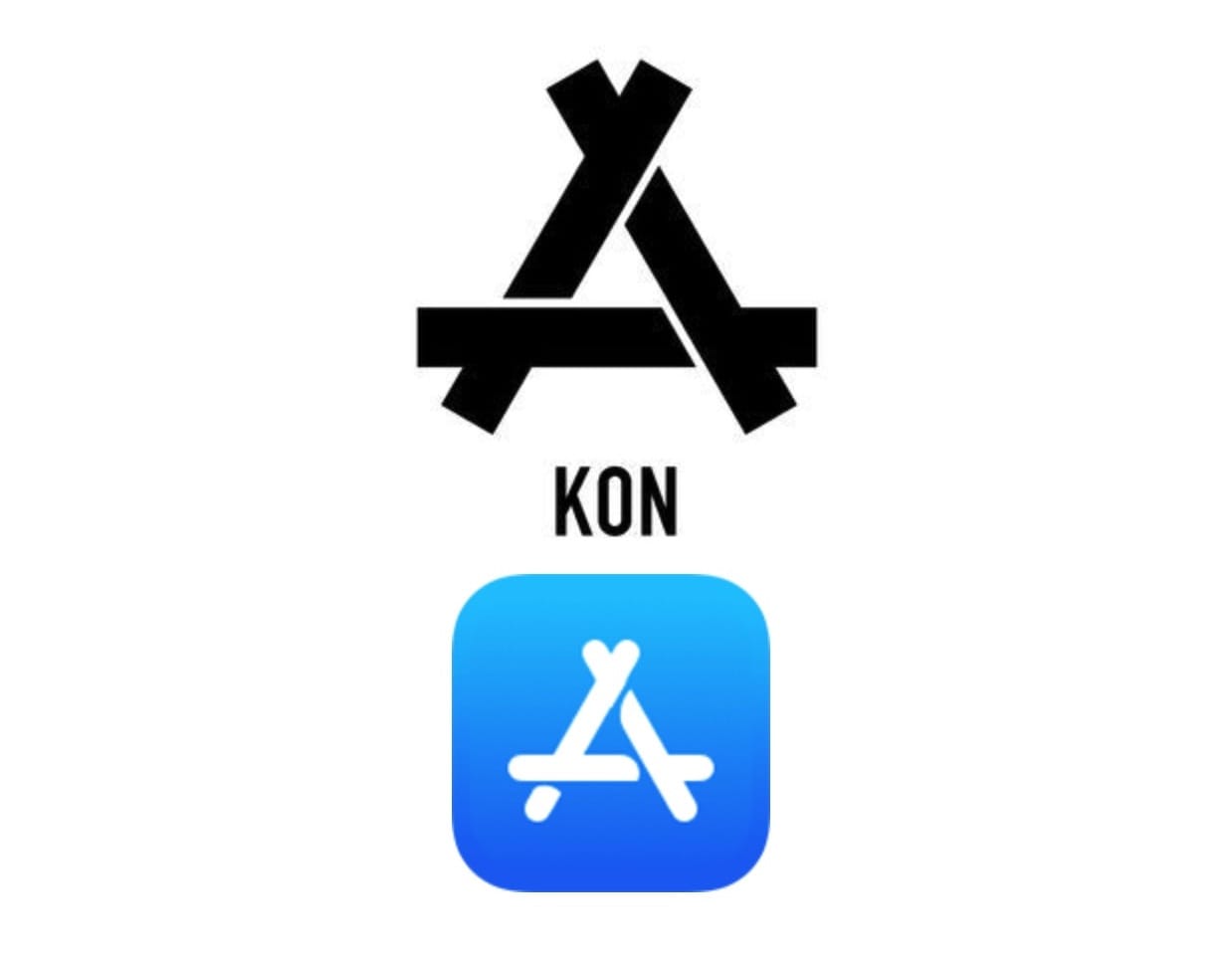
Apple is facing a lawsuit in China from a local clothing brand, which argues that Apple is infringing on its design trademark with its logo for App Store.
Apple changed the icon for the App Store in August this year — jettisoning the previous image showing a ruler, pencil and paintbrush crossing over to form an “A” shape, in favor of a simplified version of the same image. Unfortunately, clothing brand Kon has been using a similar image dating back to 2009, supposed to show skeletons bones symbolizing triumph over death.

Here’s one reason we still don’t know whether the next iPhone will be called the iPhone X, iPhone 8 or something else entirely. A loophole that allowed intrepid investigators to dig up secret Apple product names has been closed.
It’s like Apple loves secrets or something!
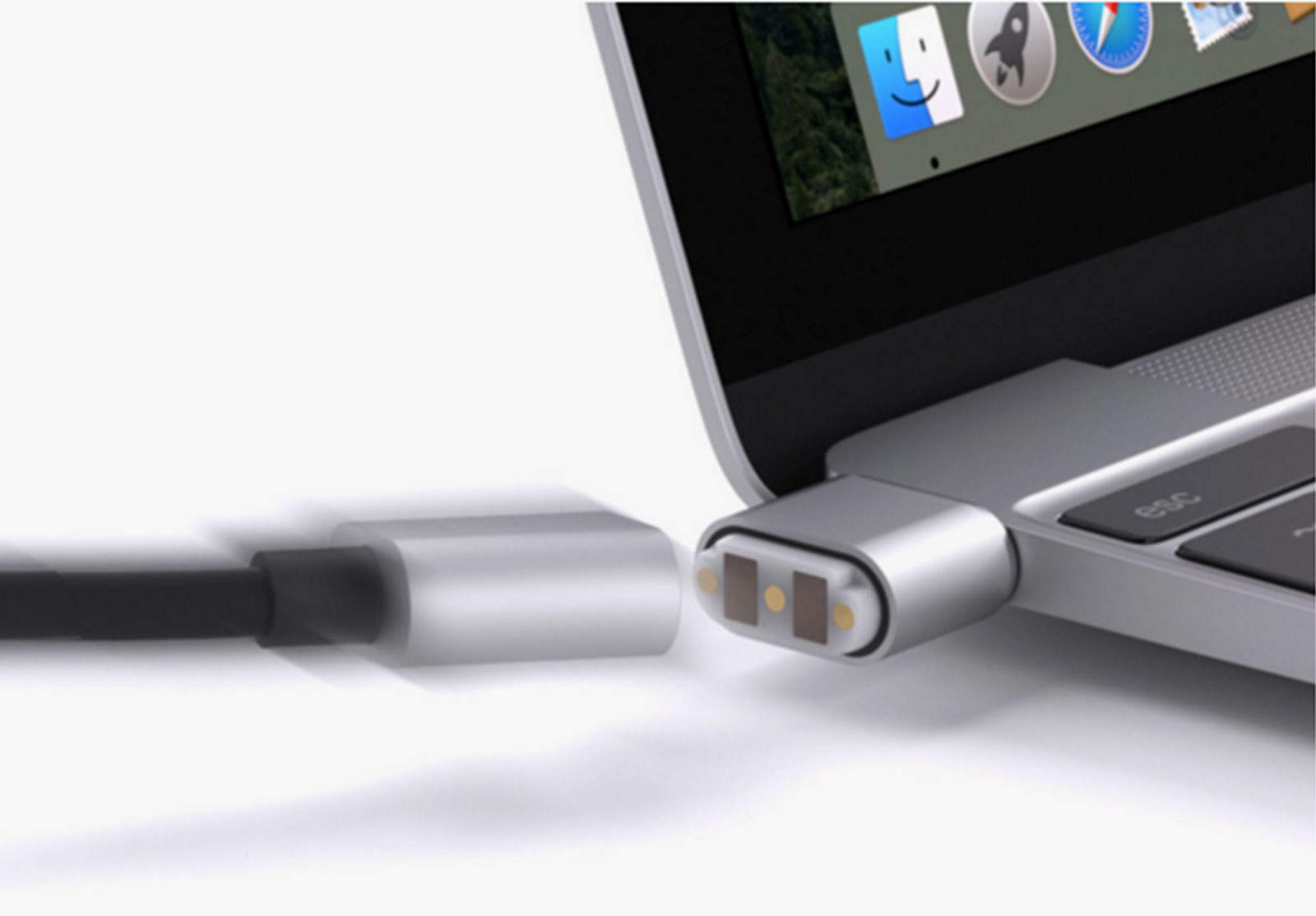
Apple killed its awesome MagSafe power connection feature on the new MacBook Pro, but based on a new patent filing, the beloved port could be ready to make a comeback.
USB-C replaced MagSafe on the MacBook Pro because it can handle both power and data on a single port. It lacks the brilliant safety features of MagSafe. Hwever, it looks like Apple found a workaround similar to Griffin’s magnetic BreakSafe cables.
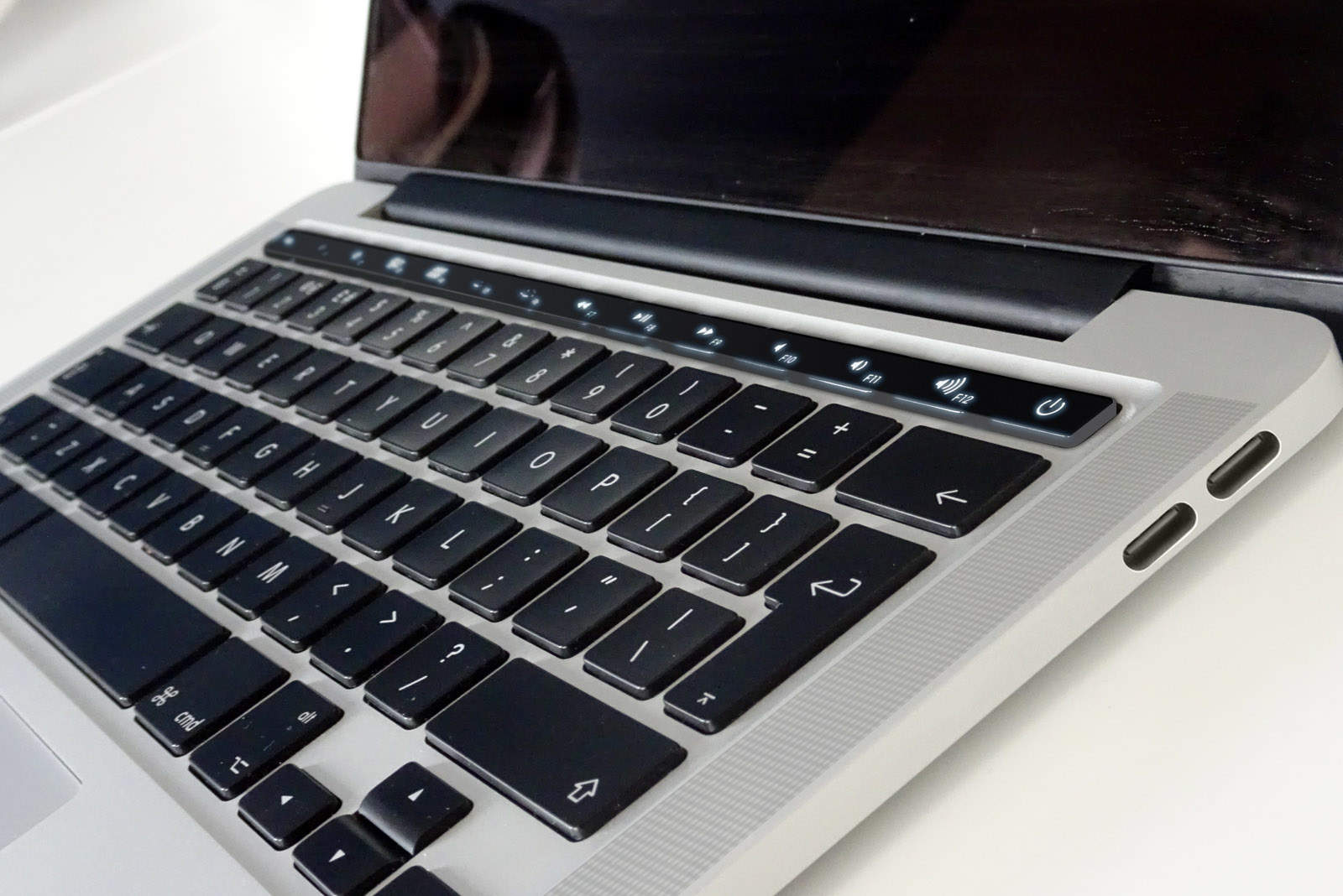
Apple has registered trademarks for three new MacBooks days ahead of its “Hello again” press event. Two of them are likely to be the new MacBook Pro in 13- and 15-inch sizes, while the other is expected to be a new 13-inch Retina MacBook.

It’s well known that Apple, like many multinationals, uses a variety of non-U.S. countries to help reduce its tax bill. However, what is less well known is that the company also takes advantage of some interesting pieces of international legal minutiae to keep its future plans secret.
In particular, Apple is a big fan of Jamaica when it comes to filing trademark paperwork about its upcoming products — since Jamaica doesn’t easily provide would-be snoopers with a way to search databases about newly-filed information.

Next time you buy an iPhone from China, you better be careful you’re not really getting a luxurious leather purse.
Apple is no longer the exclusive owner of the iPhone trademark in China, after losing a long legal battle against a Chinese company that claimed to have filed for the trademark much earlier.
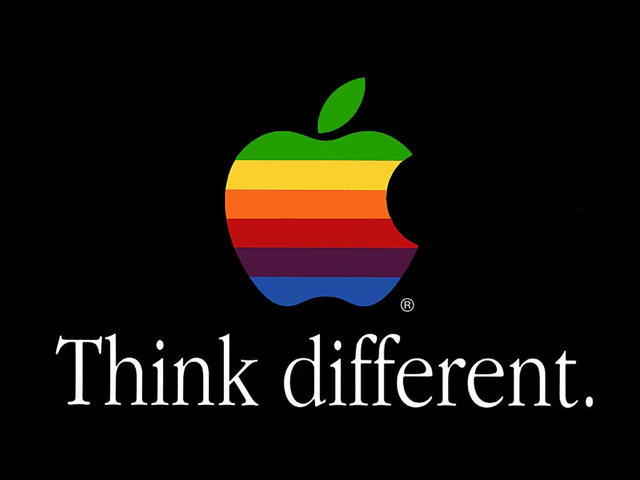
It’s been many years since Apple last used its famous “Think Different” advertising slogan, which accompanied the company’s ads from soon after Jobs’ return in 1997 until the launch of the iMac G4 in 2002.
Almost a decade-and-a-half later, however, Apple’s not content to let the trademark lapse on its iconic mantra: this month updating it for the first time since 2009 with a new European Patent and Trademark Office filing.
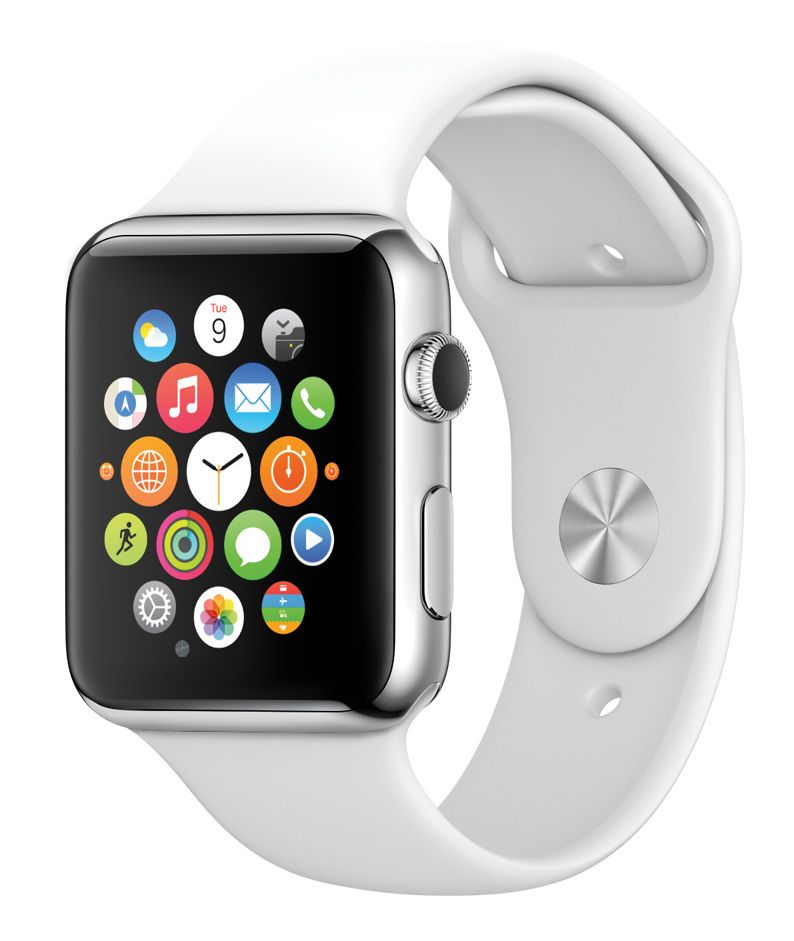
While the rest of us were celebrating the unveiling of Apple’s much-anticipated smart watch on Tuesday, Apple’s European legal team was busy rushing to file six trademark applications for the name “Apple Watch.”
Of these applications, four featured the Apple logo in front of the word “Watch,” while the other two referred to the two words “Apple Watch.”
Apple’s legal firm filed the trademarks under a total of 11 International Classes for protection and clarification, covering areas including financial transactions, fitness and wellness sensors, and more.
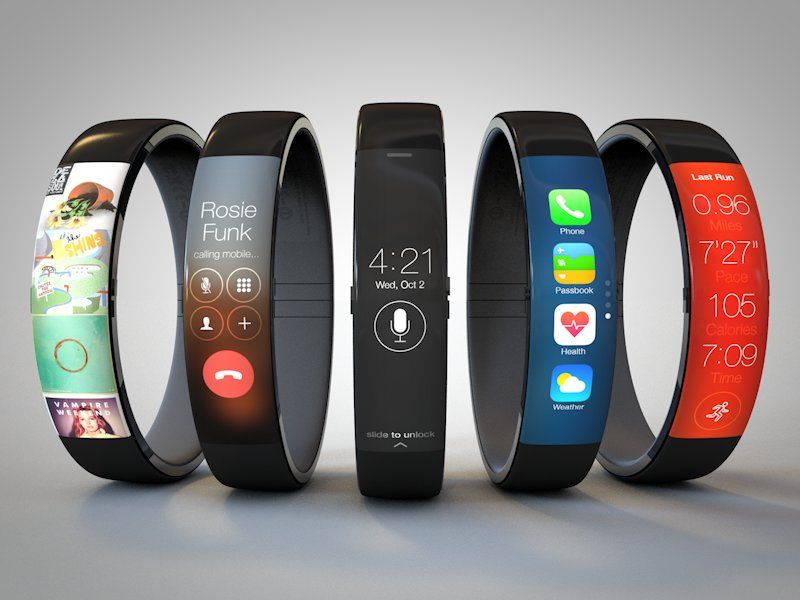
Another piece of the “when will Apple release the iWatch” puzzle may have fallen in to place, with the news that Apple is actively pursuing the iWatch trademark in dozens of countries around the globe.
Of course, it wouldn’t be Apple if it was that straightforward.
Rather than trademarking the term itself, Apple appears to be using a shell company called Brightflash USA LLC to do the work on its behalf.
The firm is registered in Delaware, and has previously been tied to trademarking efforts by Apple. One indicator of the connection between Apple and Brightflash is that it is using the same IP attorney in several locations.
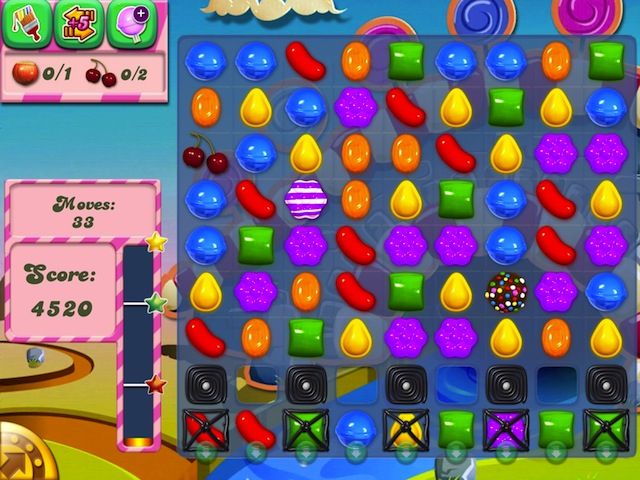
The company behind Candy Crush Saga has withdrawn its controversial trademark application for the word “Candy” in the United States, according to documents filed with the U.S. Trademark Office early on Monday morning.

Did Apple invent the “app”?
In terms of coining the word — or coming up with the idea of software — the obvious answer is that of course they didn’t.
But did Apple’s approach to apps — seen most readily through the type of applications sold through its App Store — forever change what the typical user thinks of when they hear the word?

Apple has moved to trademark the “Advertising Re-Imagined” slogan used to promote its iAd mobile advertising platform. The Cupertino company filed for the trademark on Wednesday, September 25, more than three years after it launched the iAd business.
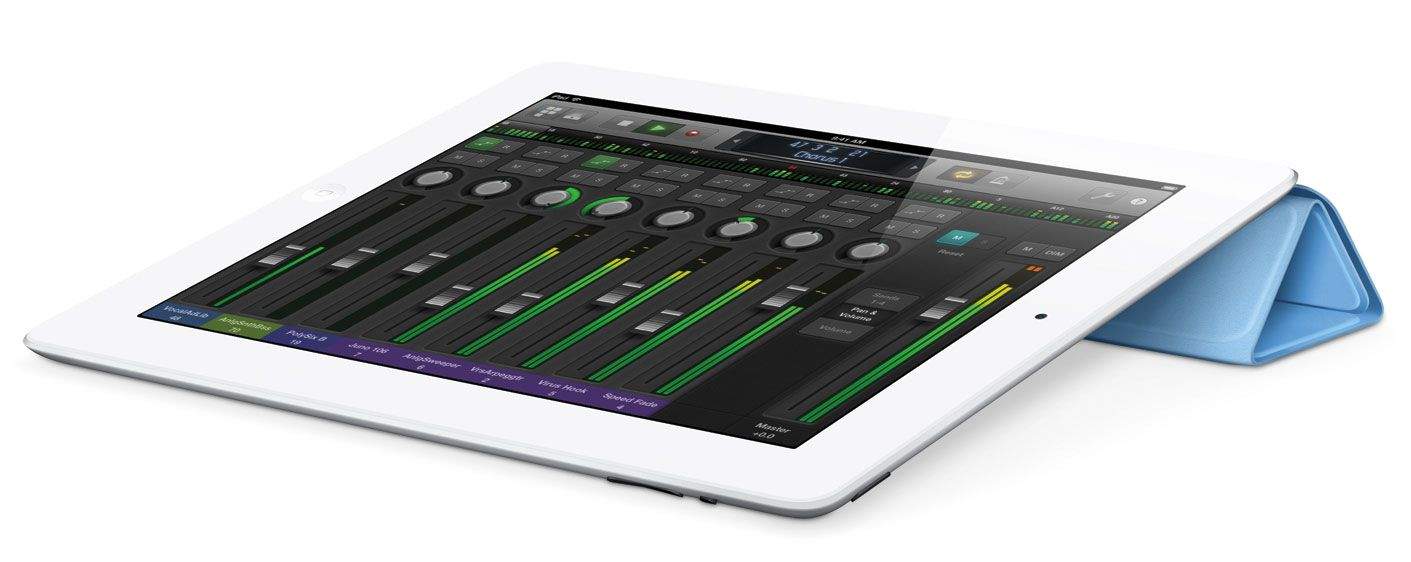
Apple announced Logic Pro X last week, and alongside it an iPad companion app called Logic Remote that allows users to record, mix, and play virtual instruments remotely. The Cupertino company has now moved to trademark the app’s icon.

Flowboard. Flipboard. Look too similar? The people behind the Flipboard app certainly think so.
Brent Brookler, CEO of Treemo and creator of e-publishing iPad app Flowboard, says Flipboard has been threatening him with legal action since shortly after his app launched back in April, asking him to change the name of his app. Flipboard also wants the logo changed, which they say is also too similar to its own logo.

Apple is on a quest to register the “iWatch” trademark worldwide ahead of its rumored smartwatch launch later this year, with filings already made in Japan, Taiwan, and Mexico. But the Cupertino company will hit a snag in the United States and the United Kingdom, where the iWatch name is already spoken for.
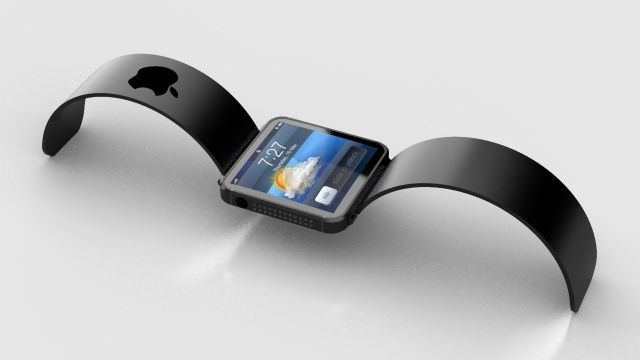
Apple has applied for the “iWatch” trademark in Japan following months of speculation that has claimed the company will launch its first smartwatch later this year. According to the June 3 filing with the Japan Patent Office, which was spotted by Bloomberg, the iWatch name will cover products including “a handheld computer or watch device.”
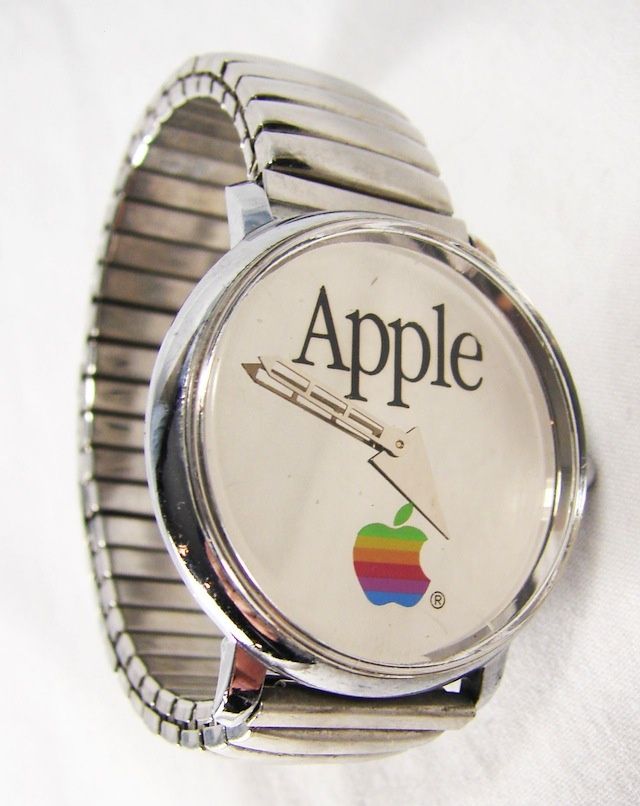
Apple’s regard for top-notch design means it has always walked the line between tech and aesthetics, but the company’s leap into the world of wearables will be its most high-fashion move yet. Other tech companies, including Samsung, have already trotted out their own smartwatches to beat Apple to market, but even the staunchest supporter of these devices is unlikely to say that they’re Rolex-beaters.
Realistically, the most anyone has been able to say about current wearables like the Nike FuelBand SE is that they are inoffensive. That’s simply not going to be enough if the iWatch is going to be the kind of mass-market product that will finally bring wearables into the mainstream. In addition to its gamut of biotech engineers, Apple has also got the former CEO of fashion house Yves Saint Laurent on its books, who was hired in 2013 for "special projects." More recently, Apple hired a key executive from Swiss watchmaker TAG Heuer, following earlier reports that Cupertino had unsuccessfully been trying to poach luxury watchmakers for its wearables debut.
When the iWatch comes, could it be called the iсмотреть instead? Perhaps not, but a new report suggests that Apple has already registered a trademark for iWatch within Russia.

Randolph Divisions makes the HearPod, a digital hearing aid. The company has owned the “HearPod” trademark since 2007, and it recently filed a trademark infringement lawsuit against Apple in Hawaii District Court. Apparently “HearPod” and “EarPods” sound too much alike.
Apple also owns a trademark for its EarPods, but it doesn’t own the earpods.com or earpod.com domain names—Randolph Divisions happens to own the latter.
With the kind of cash Apple has in the bank, Randolph Divisions will likely be paid off to settle this lawsuit.
Source: The Next Web

Apple has been dealt yet another blow by the U.S. Patent & Trademark Office after receiving confirmation that its famous “rubber banding” patent, which plays a key role in the company’s fight against Samsung, is invalid. The “final” decision comes after the USPTO tentatively rejected all claims in the ‘381 patent back in October 2012.
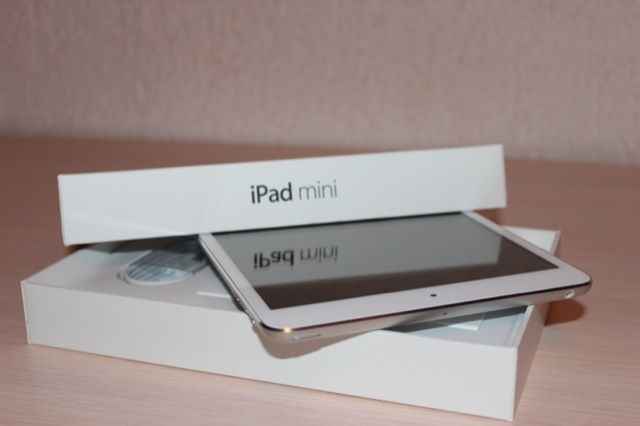
The iPad mini is one of Apple’s biggest successes to date, but that doesn’t matter to the US Patent and Trademark Office, which has turned down Apple’s request for a trademark on the iPad mini because it is “merely descriptive.”
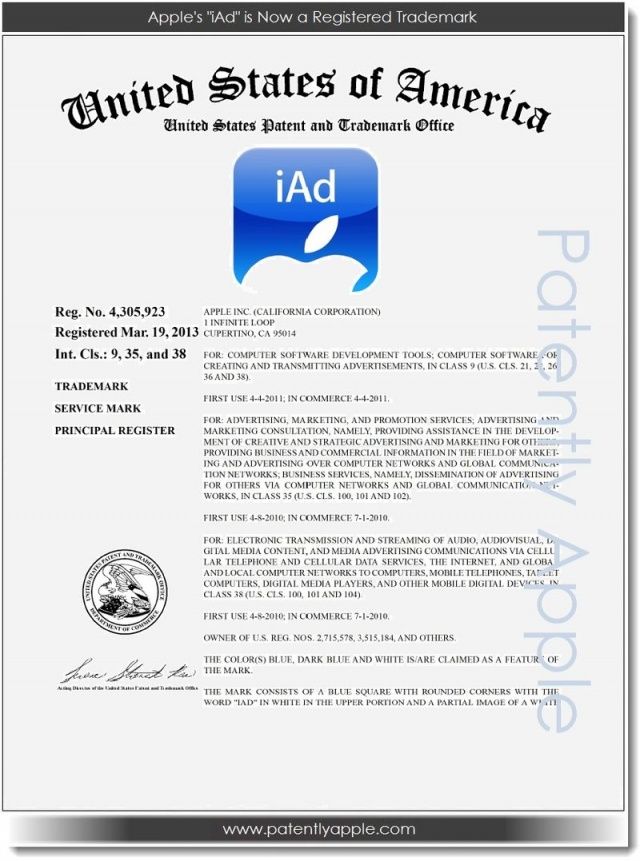
The U.S. Patent & Trademark Office has today approved Apple’s application for a registered trademark for “iAd,” 21 months after the Cupertino company first applied for it.